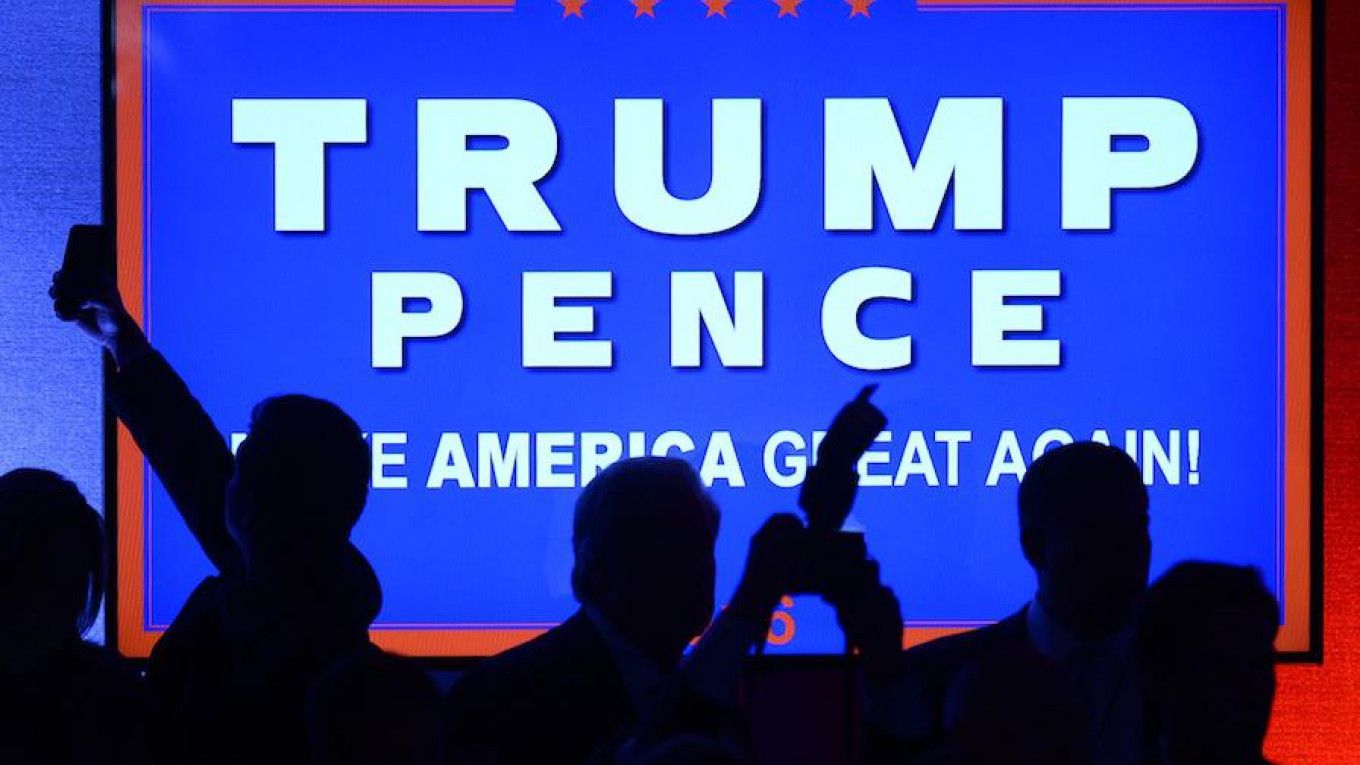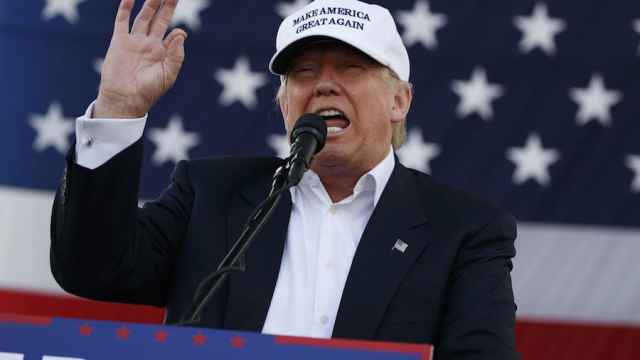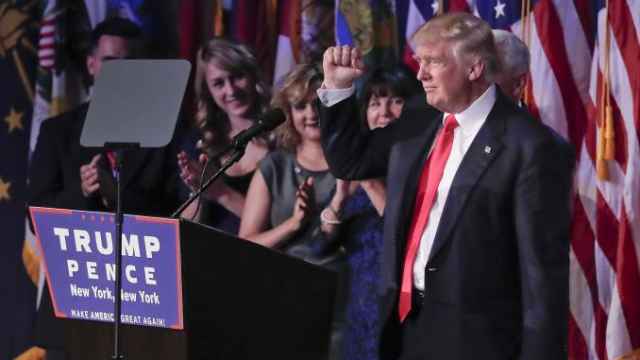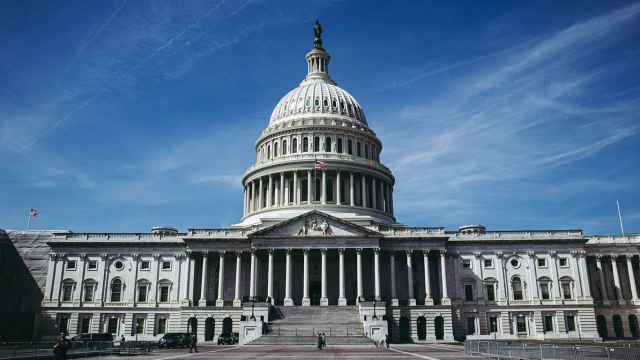Like other foreign capitals, Moscow finds itself befuddled by the lack of specifics and conflicting objectives in what passes for Trump’s foreign policy. Having driven the relationship with the Obama administration into a volatile state of mutual hostility, the Kremlin is now betting on Trump’s fairly non-committal statements on improving U.S.-Russia relations. Even after a 30-minute phone call between Putin and Trump last Monday — an exchange which was described by Foreign Minister Sergei Lavrov as “manly” — the Kremlin has little idea what Trump’s policies on Ukraine and Syria will be.
Ultimately, Moscow is moving to exploit the disarray and lack of foreign policy gravitas in President-elect Trump’s transition team to help steer his opening moves on the international stage in ways that advance Russia’s goals.
The Kremlin sees signs of weakness in the Trump administration, especially as it contemplates the random names and uneasy fits currently flying around as potential candidates for key national security positions. Trump has a short bench and is having trouble recruiting top talent from the Republican foreign policy establishment. Moscow is heartened by Trump’s inclination to break with the establishment’s anti-Russia consensus by offering key positions to outsiders and mavericks, those from his circle of trust who may not have a breadth of foreign policy expertise. It sees that potential competing power centers could paralyze coherent policy making, allowing Moscow would maintain the initiative. Yet it also sees with trepidation an increasing number of anti-Russia hawks vying to shape Trump’s policies.
The Art Of The Deal: Read more on why Russia is keen For Trump's ad hoc diplomacy.
Big hopes are pinned on General Michael Flynn, Trump’s choice for National Security Advisor. This is not just because he once sat next to Putin at a gala dinner for Kremlin media outlet RT. Flynn is no witting Russian agent. Rather, he is seen as a source for disruption in U.S. foreign policy, a force which could upend the traditional Washington playbook which marks Russia as a threat. Flynn’s single-track mind and fixation on radical Islamic terrorism — an obsession which borders on downright Islamophobia — puts him at odds with senior U.S. national security leaders who view Russia and China as the existential threat. There is also hope that Flynn will help force out the senior U.S. military commanders who objected to joint U.S.-Russia combat operations in Syria under Obama.
Moscow will likely push for a quick mind meld with Flynn and President Trump on Syria in order to form a strategic U.S.-Russia alliance to combat “radical Islamic terrorism” in the Middle East, North Africa and Afghanistan. The fact that's Flynn’s erroneous equation of Islam and terrorism is likely to fuel support for jihadi groups, further inflame the Middle East and, perhaps, plunge the U.S. into another regional war, is of little concern to Moscow. It sees in this both an opportunity to diminish U.S. global power and thrust itself into an equitable relationship with Washington: one which would renounce regime change and meddling in Russia’s near abroad. Moscow is already talking to people who may have a role in Trump’s Syria policy and is anxiously awaiting the appointment of the Russia policy tsar.
Trump’s appointment of Rep. Mike Pompeo as CIA director is viewed with some concern in Moscow, given his strong opposition to the nuclear deal with Iran, support for arming Ukraine, and sanctions against Assad regime in Syria. Yet it could still take heart in Pompeo’s strong criticism of the CIA program to arm Syrian rebels that Moscow wants quickly ended.
The world after Trump: How long before the Kremlin turns its back on its new best friend?
There is considerable apprehension about Trump’s potential choices for Secretary of Defense. Names like Sen. Tom Cotton or former Sen. Kelly Ayotte advocate a strong line on Russia, as well as pushing for significant increases in military spending and nuclear modernization programs. The good news for the Kremlin is that Sen. Jeff Sessions, a strong advocate for missile defense, may now head to the Justice Department.
Trump’s top picks for the Secretary of State, Rudy Giuliani, John Bolton, Mitt Romney, South Carolina Governor Nikki Haley and Sen. Bob Corker, inspire little feeling in Moscow: perhaps with the exception of Bolton and Corker, who are viewed as “Russophobes.” Giuliani, with his obsession with Islamic terrorism, little foreign policy expertise and murky business relationships is viewed as a potential ally who could be easily manipulated. Romney, another former presidential candidate, is considered a voice for predictability and pragmatism, despite his 2012 portrayal of Russia as the “number one geopolitical foe of the United States.”
Overall, Russia’s preliminary assessment of Trump’s emerging national security team is leaning toward weak and dysfunctional, compared to Moscow’s streamlined and instantaneous decision-making. Having a JV team in Washington operating on false policy assumptions that generally align with Russia’s interests and objectives is net geopolitical gain for the Kremlin- or at least so it seems.
A Message from The Moscow Times:
Dear readers,
We are facing unprecedented challenges. Russia's Prosecutor General's Office has designated The Moscow Times as an "undesirable" organization, criminalizing our work and putting our staff at risk of prosecution. This follows our earlier unjust labeling as a "foreign agent."
These actions are direct attempts to silence independent journalism in Russia. The authorities claim our work "discredits the decisions of the Russian leadership." We see things differently: we strive to provide accurate, unbiased reporting on Russia.
We, the journalists of The Moscow Times, refuse to be silenced. But to continue our work, we need your help.
Your support, no matter how small, makes a world of difference. If you can, please support us monthly starting from just $2. It's quick to set up, and every contribution makes a significant impact.
By supporting The Moscow Times, you're defending open, independent journalism in the face of repression. Thank you for standing with us.
Remind me later.








